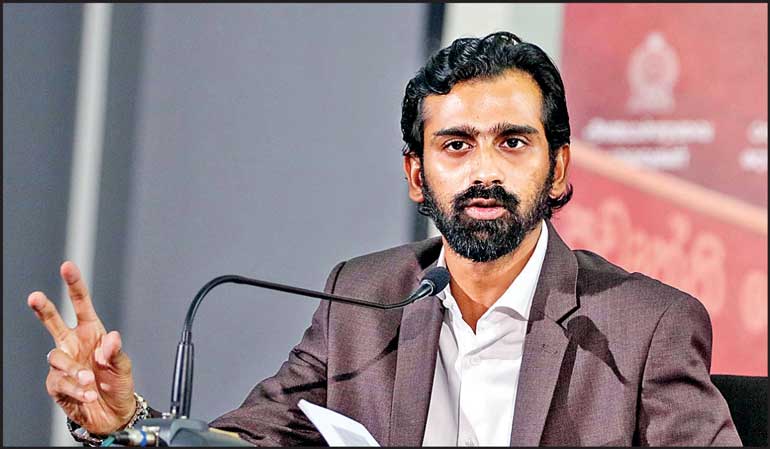Monday Feb 23, 2026
Monday Feb 23, 2026
Wednesday, 14 August 2024 00:00 - - {{hitsCtrl.values.hits}}

Estate Infrastructure Minister Jeevan Thondaman
By Charumini de Silva
Estate Infrastructure Minister Jeevan Thondaman yesterday expressed gratitude to the Planters’ Association and the Employers’ Federation of Ceylon (EFC) for their constructive engagement in the recent wage negotiations, which culminated in an agreement to raise the minimum wage for estate sector workers to Rs. 1,700.
Speaking at the weekly post-Cabinet media briefing, Minister Thondaman explained that their willingness to come to the table and discuss the matter openly was instrumental in achieving the latest outcome.
“I am aware of the ongoing differences between companies and trade unions, but I am confident that reaching agreements on these important issues will help us advance and revitalise the tea sector,” he stated.
He noted that the new wage regulation will be formalised in a gazette to be issued after a 14-day objection period, during which a mechanism will be developed to determine how the Rs. 350 productivity allowance will be paid.
“Under Section 33 of the Wages Board Ordinance, a quorum for the Board’s decision-making process required the presence of two representatives from the companies, two from the unions and one from the Government. Previous meetings faced challenges as company representatives had refused to attend due to legal concerns, causing delays in finalising the wage increase,” he said.
The Minister recounted how an initial decision to implement the Rs. 1,700 wage was contested in the Supreme Court due to a procedural error. “The Court’s ruling emphasised the need to rectify this error rather than opposing the wage increase itself. Following the Court’s guidance, the first gazette was revoked and further negotiations with company representatives led to a consensus on the wage hike,” he added.
Reflecting on the voting process, Thondaman voiced disappointment that three trade unions, affiliated with a Presidential candidate, voted against the Rs. 1,700 minimum wage, whilst RPCs voted in favour of it.
He also stressed that the Wages Board only has the mandate to decide on the minimum wage and allowances, not on the frequency of wage increases or other employment terms.
Thondaman also addressed concerns about the wage review period, noting that while previous collective agreements allowed for wage increases every two years, the current situation has extended this to three years due to political instigations that disrupted the collective bargaining process.
He reassured that adjustments would be made to ensure fair compensation over the longer interval.
Thondaman also gave special recognition to former Labour Minister Manusha Nanayakkara for his pivotal role in the negotiations.
He praised Nanayakkara’s efforts in bringing the companies to the table, calling him ‘the unsung hero of this decision’.
“Former Minister Nanayakkara went above and beyond to ensure that the workers get their due payment of Rs. 1,700,” he acknowledged.
Additionally, Thondaman expressed his gratitude to President Ranil Wickremesinghe for his unwavering commitment to improving the lives of plantation communities throughout his term and acknowledged the support of the Cabinet of Ministers, headed by Prime Minister Dinesh Gunawardena, in backing this proposal.